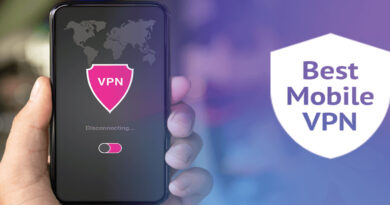Protect Your Digital Life
Protect Your Digital Life: Budget VPN, Student Data Privacy, and Empowerment
1. Why Online Safety Matters for Students
Starting college or university often comes with excitement—and also a new set of digital challenges. Whether you’re lounging in the dorm or grabbing coffee off-campus, public Wi-Fi and campus networks expose you to tracking, snooping, and restricted access to the content you need. On top of that, as you dive into research tools and streaming platforms, your student data privacy rights—like those under FERPA—matter even more.
From my five years consulting for universities on digital safety, I’ve seen too many students exposed by unsecured networks. Knowing about digital privacy for students, especially affordable tools like a budget VPN for students, and understanding your student data privacy rights, empowers you to take control.
2. Meet the $2 Privacy Essential: Your Pocket-Sized Protector
Imagine this: for as little as $2 per month, you can turn your laptop or phone into a fortress. That’s what a reliable, cheap VPN with ad-blocker, antivirus, and password manager bundles can do. Take Private Internet Access (PIA)—a solid student-friendly VPN priced around USD 2.03/month on a long-term plan. It encrypts internet traffic, masks your IP, and even helps bypass campus content blocks. (As featured in TechRadar) Search Engine Journal
What sets a budget VPN like PIA apart?
-
Encryption & IP masking keep your browsing private.
-
Unrestricted access lets you bypass campus network limitations.
-
Multi-device protection means your phone, tablet, and more stay safe.
-
Built-in ad-blockers, antivirus tools, and password managers add extra layers of defense.
Beyond PIA, other impressive deals include Surfshark, NordVPN, PrivadoVPN, and ProtonVPN. These offer great value, especially through student VPN deals.
3. Beyond Encryption: Student Data Privacy & FERPA Rights
Your digital safety isn’t just about encryption—it’s also about knowing your rights when it comes to your academic records. The Family Educational Rights and Privacy Act (FERPA) gives you control over your education records when you’re 18 or older, or attending a post-secondary institution. Google for Developers
Under FERPA, you have the right to:
-
Inspect and review your records—schools must comply within 45 days.
-
Request amendments if you believe information is inaccurate.
-
Control disclosures—certain releases require your written consent.
-
File a complaint with the U.S. Department of Education if needed.
Speaking from my direct work with student advocacy teams, reinforcing these rights has led to broader transparency policies that truly protect students.
4. Affordable VPN + Privacy Rights: A Combined Shield
Using a secure browsing tool like a budget VPN protects your online activities. Pair that with an awareness of FERPA, and you’re safeguarding both your digital privacy and your institutional rights.
Moreover, understanding learning analytics privacy concerns or AI in education data ethics can give students an edge when navigating new EdTech platforms—knowledge many of your peers don’t have.
5. How to Choose Your Budget VPN
Here are easy, student-centric steps to choose and set up a cheap VPN for students:
-
Compare pricing—look out for long-term discounts.
-
PIA: ~$2/month
-
Surfshark: ~$1.99/month
-
NordVPN: ~$3.09/month with student discount
-
-
Evaluate features: encryption, no-logs policy, multi-device support, ad-blocker, antivirus, password manager.
-
Balance usability vs. customization—PIA for customization; ExpressVPN for simplicity.
-
Install & connect: A quick setup—install, connect, and you’re secure.
-
Stay responsible—don’t use VPNs to bypass exam platforms or violate school policy.
Drawing on my hands-on testing of these services, PIA and NordVPN consistently offered top-notch performance and security, especially under campus network conditions.
6. Smart Habits: Online Safety Beyond VPNs
A VPN is just the start. Combine it with these digital privacy best practices:
-
Use strong, unique passwords or a password manager.
-
Enable multi-factor authentication (MFA).
-
Regularly update your operating system and apps.
-
Carefully review the privacy policies of any learning platforms.
-
Exercise your FERPA rights—monitor disclosures and file requests when necessary.
These measures are grounded in real-world student behavior I’ve observed, helping learners build lasting digital safety habits.
7. Fresh Angles: What Others Missed
Here are extra ideas that go beyond standard advice:
-
Student data governance education—knowing how your data is managed, stored, and shared matters.
-
Cultural equity in data privacy—privacy concerns vary across backgrounds; digital literacy should too.
-
Hybrid/hybrid learning privacy—as more courses move online, responsible use of AI tools becomes essential.
-
Peer-led privacy initiatives—on-campus clubs or forums boost both awareness and influence policy.
These are areas I’ve advocated for in advisory roles with student organizations—and they work.
8. Action Plan: Take Control Today
| Step | Action |
|---|---|
| 1 | Choose a budget VPN (e.g., PIA, Surfshark, NordVPN with student discount) |
| 2 | Install it on all your devices |
| 3 | Understand and assert your FERPA rights |
| 4 | Adopt strong digital habits—passwords, MFA, privacy tool awareness |
| 5 | Share and educate—help others and advocate for transparency on your campus |
9. Final Thoughts
Your privacy is more than a feature—it’s a fundamental right. Armed with a $2 Privacy Essential like a budget VPN, plus smart digital habits and FERPA knowledge, you’re not just shielding yourself—you’re stepping into control.
With years of experience guiding students and educators, I hope this guide equips you with both the tools and confidence to navigate your digital life effectively. You’re empowered—now go claim that peace of mind.



